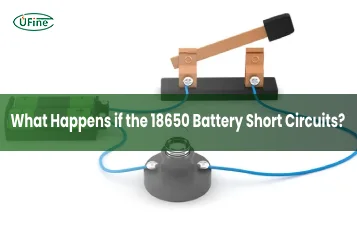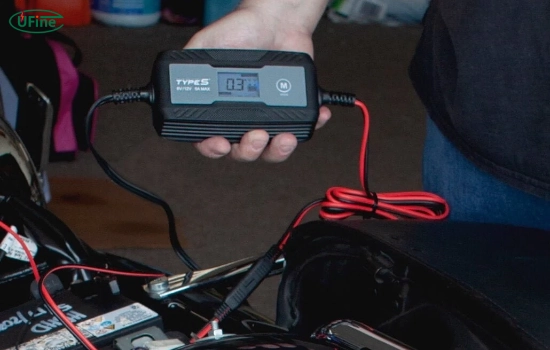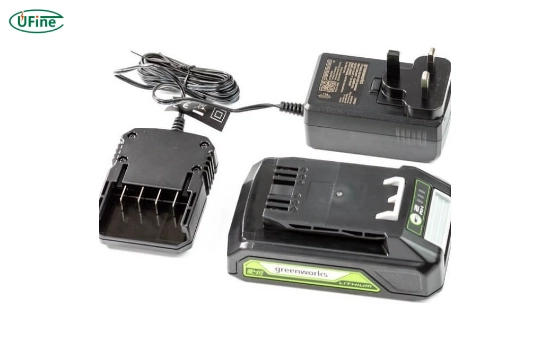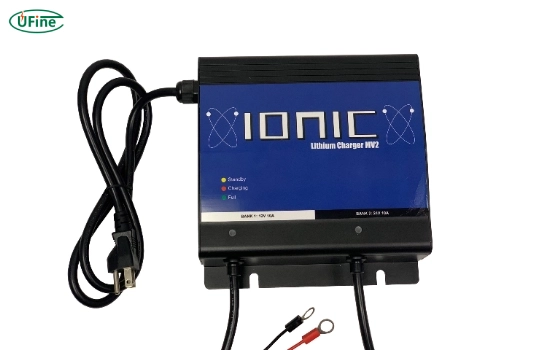Battery chargers are essential devices that keep our electronic gadgets, vehicles, and other battery-powered equipment running smoothly. These handy tools efficiently charge our batteries, allowing us to use our devices without interruption. In this comprehensive guide, we’ll explore the world of battery chargers, covering everything from the basics to advanced charging solutions.
Part 1. Battery charger types
Battery chargers come in various types, each designed to cater to specific needs and applications. Let’s dive into the most common types:
1. Standard Chargers
Standard chargers are the most basic type, typically used for charging smartphones, tablets, and other small electronic devices. They provide a steady power flow to the battery, ensuring a safe and reliable charging process.
2. Fast Chargers
As the name suggests, fast chargers offer a quicker charging experience than standard chargers. They deliver a higher voltage and current to the battery, allowing it to charge more rapidly. Rapid chargers are handy when you need to quickly top up your device’s battery before heading out.
3. Wireless Chargers
Wireless chargers eliminate the need for physical connections, providing a convenient and clutter-free charging experience. These chargers use electromagnetic induction to transfer power from the charging pad to the device, making them ideal for use in homes, offices, and public spaces.
4. Solar Chargers
Solar chargers harness the power of the sun to charge your devices. They are perfect for outdoor enthusiasts, campers, and anyone needing a reliable charging solution in remote areas where traditional power sources are unavailable.
Part 2. Choosing the correct battery charger
When selecting a battery charger, it’s essential to consider several factors to ensure compatibility and optimal performance. Here are some key considerations:
Device Compatibility
Ensure your charger is compatible with your device’s battery type and voltage requirements. Using an incompatible charger can damage your device or cause safety issues.
Charging Speed
If you need to charge your device quickly, look for a charger with fast charging capabilities. However, keep in mind that fast charging may generate more heat and can potentially reduce the battery’s lifespan if used excessively.
Safety Features
Look for chargers with built-in safety features, such as overcharge protection, short-circuit protection, and temperature control. These features help prevent damage to your device and ensure a safe charging experience.
Portability
Consider the size and weight of the charger if you plan to use it on the go. Portable chargers, such as power banks, are ideal for charging your devices while traveling or during outdoor activities.
How to Choose a Lithium Battery Charger?
Part 3. Optimizing battery charger performance
To get the most out of your battery charger and ensure the longevity of your device’s battery, follow these tips:
Avoid Overcharging
Most modern devices have built-in mechanisms to prevent overcharging. However, it is still a good practice to unplug the charger once the battery is full. Leaving the charger connected for extended periods can shorten the battery’s lifespan.
Use the Correct Charger
Always use the charger that came with your device or one specifically designed for your device’s battery type. Using an incompatible charger can damage your device or the charger itself.
Keep Chargers Clean
Clean your chargers regularly to remove dust, dirt, and debris that can accumulate over time. This helps maintain optimal performance and prevent issues like short circuits or overheating.
Store Chargers Properly
Store your chargers in a cool, dry place when not in use. Avoid exposing them to extreme temperatures, moisture, or direct sunlight, as these conditions can damage the internal components and reduce their lifespan.
Part 4. Advanced charging solutions
As technology advances, so do the charging solutions available on the market. Here are some innovative options to consider:
Intelligent Chargers
Intelligent chargers use advanced algorithms and sensors to monitor the charging process and adjust the power output accordingly. They can detect the battery’s state of charge and optimize the charging speed to ensure a safe and efficient charging experience.
Modular Chargers
Modular chargers offer flexibility by allowing you to mix and match different charging modules to suit your needs. This means you can have a single charger that can handle various battery types and charging requirements, making it a versatile choice for households with multiple devices.
Wireless Charging Stations
Wireless charging stations are becoming increasingly popular in public spaces like airports, cafes, and hotels. These stations provide a convenient way to charge your device without the need for cables, making them ideal for travelers and busy professionals on the go.
Part 5. Battery charger maintenance and safety
Proper maintenance and safety practices are crucial when using battery chargers. Here are some tips to keep in mind:
Regular Inspection
Regularly inspect your chargers for signs of damage, such as frayed cables, cracked housings, or overheating. If you notice any issues, discontinue use and replace the charger immediately.
Avoid Water Exposure
Keep your chargers away from water and other liquids. Using a charger in wet conditions or with wet hands can lead to electric shocks or short circuits.
Unplug When Not in Use
Always unplug your charger from the power source when not in use. This helps conserve energy and reduces the risk of accidents or damage to the charger or your device.
Dispose of Chargers Properly
When it’s time to replace your charger, dispose of it properly, many municipalities have recycling programs for electronic waste, so check with your local authorities to find out how to dispose of your old chargers safely.
Part 6. FAQs
-
Can I use a fast charger with any device?
No, not all devices are compatible with fast-charging technology. It’s essential to check your device’s specifications and use a charger designed for your specific model. -
How do I know if my device is charging wirelessly?
If your device supports wireless charging, you’ll typically see an indicator light on the charging pad or a notification on your screen when it’s properly aligned and charging. -
Can I charge my device while using it?
Yes, you can use your device while it’s charging. However, using resource-intensive apps or games while charging can generate more heat and may slow the charging process. -
How long do battery chargers last?
The lifespan of a battery charger depends on various factors, such as usage frequency, build quality and maintenance. With proper care and storage, most chargers can last several years before needing replacement. -
Can I use a universal charger with my device?
Universal chargers are designed to work with multiple devices. However, it is still essential to check your specific device’s voltage and amperage requirements. Using an incompatible universal charger can damage your device.
Related Tags:
More Articles

18650 Battery Short Circuit: Risks and Safety Tips
Discover what happens during a 18650 battery short circuit, warning signs, and how to avoid fire, damage, and hazardous failures in your devices.
LiPo Battery Discharge Rate Guide & Calculation Tips
Understand LiPo battery discharge rates, C-ratings, and how to calculate max current. Essential guide for RC, drones, and electronics users.
High‑Capacity 3S LiPo Batteries: 5000 mAh vs. 10000 mAh
Compare 3S LiPo 5000mAh vs 10000mAh batteries by weight, power, and use. Find the best fit for your drone, RC car, or boat setup.
Top 5 Applications for Small 3S LiPo Batteries
Small 3S LiPo batteries power drones, RC gear, wearables, and robotics with high energy and low weight. Making them ideal for compact electronics projects.
Building and Charging Your Own 3S LiPo Pack: A Step‑by‑Step Guide
Learn how to build, balance, and charge a 3S LiPo battery pack safely at home with this complete DIY guide for hobbyists and beginners.






